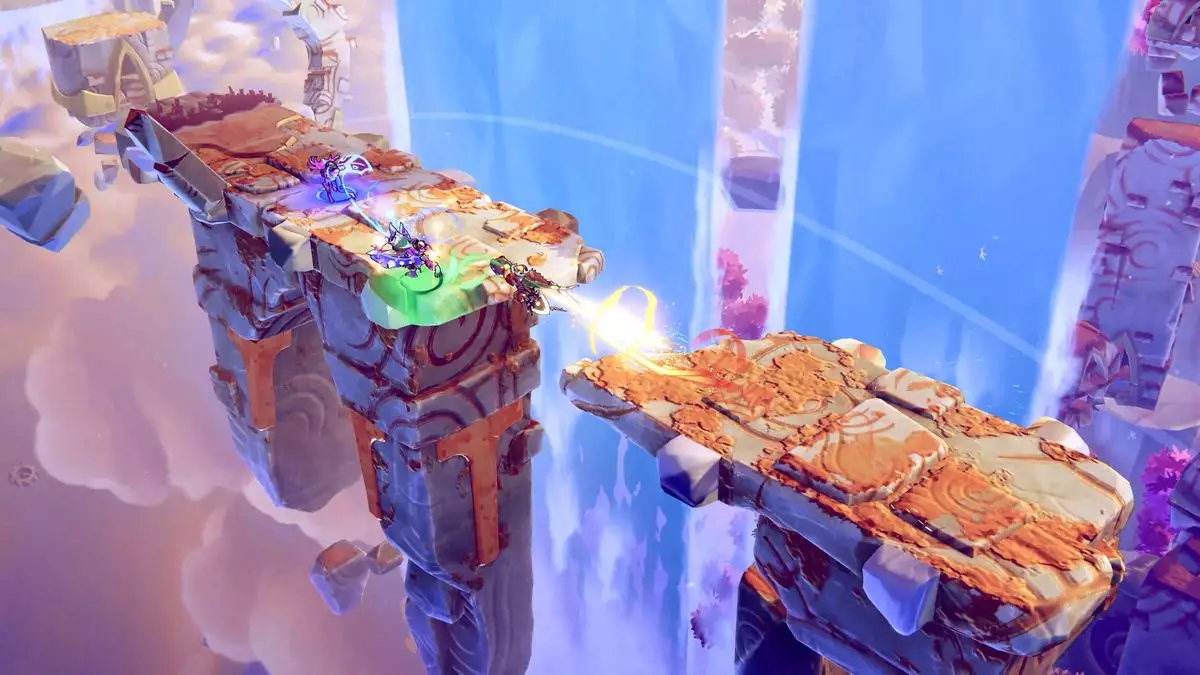The gaming landscape is ever-changing, with developers continually exploring innovative ways to engage players and refine their creations. One such pioneering team is Motion Twin, known for their critically acclaimed title, Dead Cells. With their new roguelike project, Windblown, they are once again embracing the early access model. This choice is not merely a trend; it resonates with the studio’s philosophy of prioritizing player feedback to enhance game development. As the release date of October 24 approaches, the anticipation builds. But what does this mean for the future of the game and the studio?
At the heart of Motion Twin’s development process is a commitment to listening to the gaming community. Developer Thomas Vasseur emphasizes the invaluable role players have in shaping their games. In a recent interview, he stated, “I think it’s players that give us feedback… players are very, very helpful to make games like that.” This sentiment highlights a fundamental truth in game design; the end-user experience should drive the creative process. For Windblown, this means integrating player impressions from the very onset of development.
Yannick Berthier elaborates on this approach, revealing that a select group of 200 to 300 players were invited to participate in a closed alpha test well ahead of the official early access date. Their insights have already influenced various aspects of the game’s design, from weapon dynamics to shop systems. Berthier notes, “They already shaped the game in a lot of ways,” illustrating the significant impact these players have had on refining the overall experience, ensuring it evolves in ways that resonate with the community.
While the early access model offers abundant opportunities for developers to iterate based on player input, it is not a one-size-fits-all solution. Motion Twin acknowledges that the success of this approach largely depends on the type of game being developed. As Vasseur points out, the roguelike genre benefits particularly well from early access due to its inherent replayability and modularity. The nature of these games allows developers to make frequent adjustments and additions without fundamentally altering the core experience.
In contrast, genres like narrative-driven games or Metroidvanias may face challenges within the early access framework. Vasseur illustrates this by discussing the complexities of altering a character’s moveset in a Metroidvania, which could necessitate a complete redesign of level layouts. This complexity highlights the importance of evaluating a game’s structure and flexibility when considering early access development, showcasing the nuanced decision-making required.
The Role of Modularity in Development
One of the critical takeaways from the development insights shared by Motion Twin is the concept of modularity in game design. As Berthier explains, a more modular approach enables developers to add or remove elements fluidly, enhancing their ability to respond to player feedback effectively. This flexibility allows the team to make swift adjustments, such as tweaking biomes or altering gameplay mechanics, which is crucial in maintaining momentum during early access.
Conversely, a rigid or monolithic game structure can hinder the development process. When systems are heavily interdependent, even minor changes can cascade into significant overhauls. Therefore, establishing a core design that supports modular updates not only benefits developers in terms of workflow but also enriches the player experience by enabling continuous improvements over time.
As Windblown prepares for its early access debut, the lessons learned from both Dead Cells and the player feedback gathered thus far will undoubtedly shape its evolution. Motion Twin’s commitment to a community-driven development process serves as a beacon for other studios contemplating similar paths. While early access presents its own sets of challenges, the benefits of engaging with the player base can lead to richer, more dynamic gaming experiences.
Ultimately, Windblown stands as an example of how meaningful player interaction can redefine game development. By fostering an environment where player feedback is cherished and integrated, Motion Twin not only enhances their game but also strengthens the community surrounding it. As the release nears, both developers and players look forward to how this partnership will unfold in shaping an extraordinary gaming experience.

